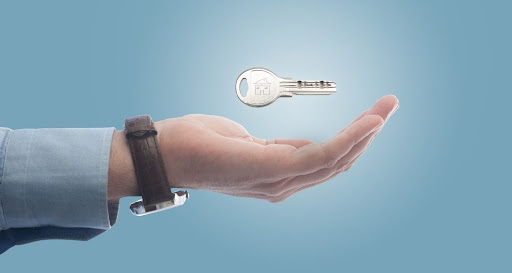With the adoption of new mortgage laws in recent years, including the mandated OSFI (Office of the Superintendent of Financial Institutions Canada) stress test in 2018, it is becoming more difficult for prospective homeowners to get the mortgages they need. People with a bad credit score or a low net worth may believe they are out of luck since banks, credit unions, and other prime lenders frequently have tight restrictions to follow regarding who they lend to.
If securing a mortgage has proven to be challenging for you, it may be time to start looking into other options.
Why Did My Mortgage Application Get Denied?
Before we go into other mortgage financing options, let’s look at why your mortgage application was declined in the first place. As previously stated, banks and other conventional lenders must adhere to tight restrictions when evaluating prospective borrowers who apply with them. They are, after all, companies that must examine their profit margins before lending money left, right, and center.
Banks get hundreds of applications each week, and lending to customers in danger of not repaying them might lead them to lose money, so they must be selective when assessing someone’s financial health. As a result, when you apply, prime lenders will look at your credit history, work history, gross monthly income, net worth, and debt history, among other things. If your creditworthiness falls short, they will judge that you are too risky to invest in and will decline your application. However, all is not lost; there are still options for mortgages on your home.
Bridge Loans
Applying for a “bridge loan” is an alternate strategy to consider. While this form of short-term loan will not help you be accepted for a bank mortgage right away, it will assist you in the transition from unbankable to bankable. In other words, it’s a method of boosting your finances to the point where you’ll be considered creditworthy by a top lender.
Here’s how it works:
- You’ll apply to a private lender for a mortgage. Your interest rate will be higher, but you will be more likely to get accepted, even if you have low credit.
- Making on-time mortgage payments can help you boost your credit score.
- After you’ve worked on fixing your credit, you’ll be eligible to apply for another mortgage with a B-lender, which often refers to smaller institutions that aren’t part of Canada’s major six banks. They should be able to provide you with a lower interest rate.
- Make your mortgage payments on time to keep your credit score improving.
- After a while, you should improve your financial situation enough to apply for a mortgage from an A-lender or large bank.
Seller Financing
You might also explore seller finance as an alternate form of funding. This is usually the most difficult to set up, but it may be quite versatile depending on what you can negotiate. The most common example is when the seller of a house is willing to give a Vendor Take Back (VTB) mortgage, in which they hold back a mortgage on the property to assist you in funding the acquisition.
In this situation, the rate and conditions will be determined by what you can negotiate with the seller, and you’ll need to locate a first mortgage lender that supports this arrangement. If the bank wants a larger down payment than you have, this might be a viable option if you can locate a cooperative seller.
Rent-to-Own
Renting to own is the next potential source of finance. You may move into a house now with a rent-to-own program and not have to worry about qualifying for a mortgage until the conclusion of your rent-to-own term. These programs are often set up as long-term leases with the opportunity to buy the property at a predetermined price. The concept is that you can go into your own house now and then exercise your option to buy once you qualify for a standard mortgage.
Rent-to-own programs might provide you the time you need to overcome whatever is preventing you from qualifying for a mortgage right now. Whether you need to focus on improving your credit, saving for a bigger down payment, or establishing a longer track record of income, this option is extremely flexible and can help you handle any issues.
Private Lenders
You might also look at private loans as an additional source of funding. Technically, they are still mortgages, but private lenders sometimes have more flexible lending rules and may be prepared to grant you finance when the bank is not.
In this situation, a down payment of at least 15% is normally required, and interest rates will be much higher than those found at a bank. If you have a short-term difficulty that prevents you from obtaining a standard mortgage or a low-interest rate, these private lenders are your best alternative.
Multiple Collateral Mortgages
As previously stated, your acceptance odds with many conventional financial institutions are heavily reliant on the health of your credit and money. The lower your credit score and gross income, the less likely you are to get approved. If these components are inadequate, you may require a buddy to build their own property for you to be approved for a mortgage. This is referred to as a dual collateral mortgage since you will be providing your lender with twice the assets and security.
Obtaining a second property to secure your mortgage will reduce the risk of your application. However, you and your friend will have to go through the same approval procedure. Both parties are jointly and severally liable for the new mortgage if it is accepted. If any of you fails, your houses will be in jeopardy.
What is Collateral?
When discussing mortgage loans, it’s also important to address “collateral” and how it might benefit your financial status and your prospects of approval. Collateral is the provision of an asset, a piece of property of substantial value. Therefore, it may operate as a sort of insurance that you can utilize to secure your lender’s confidence. Collateral is often needed when it comes to “secured” loans, such as mortgages and vehicle loans.
The Old Fashioned Way
While it is not so much an alternate kind of mortgage financing as it is just an alternative, waiting until you can better your financial situation on your terms is one option to get yourself approved. Remember that your loan institution, whether a bank or not, wants to know first and foremost that you will be able to repay them. So, if you’re still keen to receive the greatest mortgage and interest rates from a premier lender, you may want to wait until you can improve your creditworthiness.
Choosing the Right Financing Option
Depending on the conditions keeping you from obtaining a mortgage, one or more of these alternatives may be excellent possibilities for assisting you in purchasing a house now. Spend some time getting to know your present position, as well as what you want and need in your new house, and you’ll be able to make an educated choice about which financing option is ideal for you.
If you’re looking for a mortgage and want to deal with an alternative lender, Amansad Financial will help you find one that fits your requirements.

